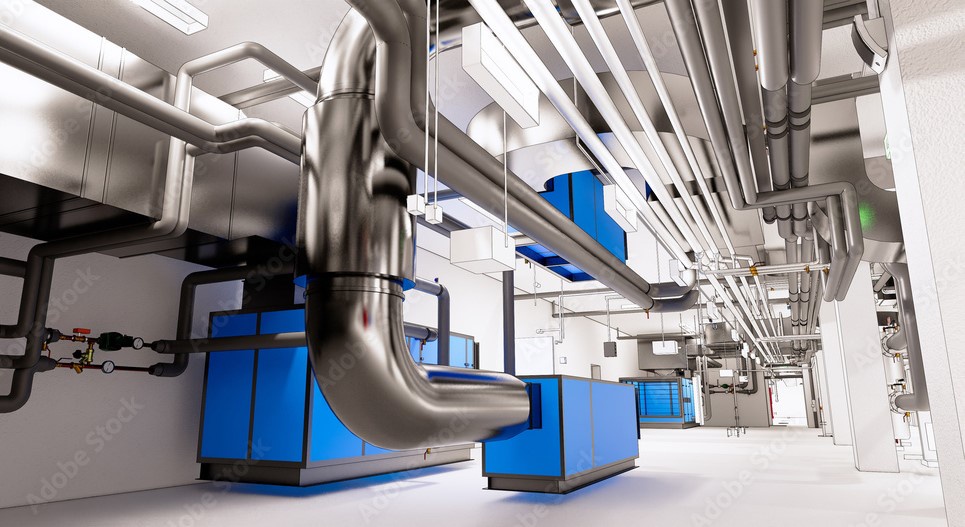A combination of technical proficiency, strategic planning, and commitment to fundamental principles are necessary for success in the complex field of Mechanical, Electrical, and Plumbing (MEP) engineering. It is critical for MEP professionals to comprehend and put these techniques into practice as they negotiate the complexity of building system engineering. This article explores essential principles that form the foundation for success in MEP engineering, offering insights into how these strategies contribute to the efficiency, sustainability, and overall excellence of building systems.
Comprehensive Coordination
Successful MEP Services begins with comprehensive coordination among the mechanical, electrical, and plumbing systems. The seamless integration of these systems is crucial for optimal performance, efficiency, and space utilization within a building. Coordination involves meticulous planning, detailed drawings, and open communication among all stakeholders. This principle ensures that the various components of MEP systems work harmoniously to meet the functional and aesthetic requirements of the structure.
Energy Efficiency as a Core Objective
Energy efficiency is no longer a luxury but a fundamental requirement in MEP engineering. Incorporating energy-efficient designs, technologies, and practices not only aligns with sustainability goals but also results in long-term cost savings for building owners. Successful MEP strategies prioritize energy modeling, system optimization, and the integration of renewable energy sources to create high-performing and environmentally conscious building systems.
Sustainability Integration
Building on energy efficiency, successful MEP engineering embraces sustainability in all aspects. This includes the use of eco-friendly materials, water conservation measures, and waste reduction strategies. Sustainable Mep Services not only contribute to environmental stewardship but also align with the growing demand for green building certifications. Integrating sustainability principles ensures that MEP systems are designed and operated with a holistic and environmentally responsible approach.
Advanced Technology Adoption
Staying abreast of technological advancements is a key principle for success in MEP engineering. The adoption of advanced technologies, such as Building Information Modeling (BIM), artificial intelligence, and smart building solutions, enhances the efficiency of design, coordination, and maintenance processes. Embracing cutting-edge tools and methodologies allows MEP professionals to deliver innovative solutions that meet the evolving needs of the construction industry.
Risk Management and Contingency Planning
Effective risk management is an integral aspect of MEP strategies for success. Identifying potential risks early in the project lifecycle and developing contingency plans help mitigate challenges that may arise during construction or operation. Whether addressing unforeseen design issues or adapting to changes in project scope, a proactive approach to risk management ensures that MEP engineering remains resilient in the face of uncertainties.
Lifecycle Cost Considerations
Successful MEP strategies account for the full lifecycle costs of building systems, not just the original construction spending. This means evaluating the MEP components' long-term operational and maintenance costs. MEP specialists may make well-informed decisions that maximize the overall financial efficiency and sustainability of building systems over the course of their operational lives by taking lifecycle costs into account.
Code Compliance and Regulatory Awareness
Adhering to building codes and regulations is a non-negotiable principle in Mep Services. Successful professionals remain vigilant about changes in codes, standards, and regulations relevant to their projects. This commitment to compliance not only ensures the safety and legality of building systems but also reflects a dedication to upholding industry standards and best practices.
Client Collaboration and Communication
Effective collaboration with clients is a cornerstone of successful MEP engineering. Understanding the client's needs, goals, and expectations is crucial for delivering solutions that align with their vision. Clear and transparent communication throughout the project, from conceptualization to completion, builds trust and ensures that the final MEP systems meet or exceed client expectations.
Continuous Professional Development
The field of Mep Services is dynamic, with new technologies and methodologies constantly emerging. Successful professionals recognize the importance of continuous learning and professional development. Staying informed about industry trends, attending relevant workshops and conferences, and pursuing certifications contribute to the ongoing refinement of skills and knowledge necessary for success in MEP engineering.
Safety First
Safety is a paramount principle in MEP engineering. Creating designs that prioritize the safety of construction workers, maintenance personnel, and building occupants is not just a legal obligation but a moral imperative. This includes implementing measures to prevent accidents during construction, ensuring safe operation and maintenance of MEP systems, and adhering to industry-specific safety standards.
MEP Services Flexibility and Adaptability
MEP Services places a high value on flexibility and adaptation, particularly in an industry where change is a continuous. Professionals that are successful are skilled in incorporating new technology, modifying to meet unforeseen problems, and responding to changing project requirements. MEP systems must be able to adapt quickly to change in order to be responsive to the changing demands of the construction site.
Quality Assurance and Quality Control
Success in MEP initiatives requires a steadfast dedication to quality assurance and control. MEP systems are made to satisfy the highest quality requirements through meticulous testing, inspections, and adherence to industry regulations. Strong quality assurance procedures are essential for preventing mistakes and flaws as well as extending the lifespan and dependability of construction systems.
Conclusion
In conclusion, the success of MEP engineering lies in a strategic blend of coordination, sustainability, technological prowess, and a commitment to quality. Adapting to industry shifts, prioritizing client collaboration, and upholding safety standards are pivotal. Embracing these principles ensures that ENGISOFT ENGINEERING - BIM Staffing & BIM Services navigate complexities with finesse, delivering high-performing, efficient, and sustainable building systems.


No comments yet